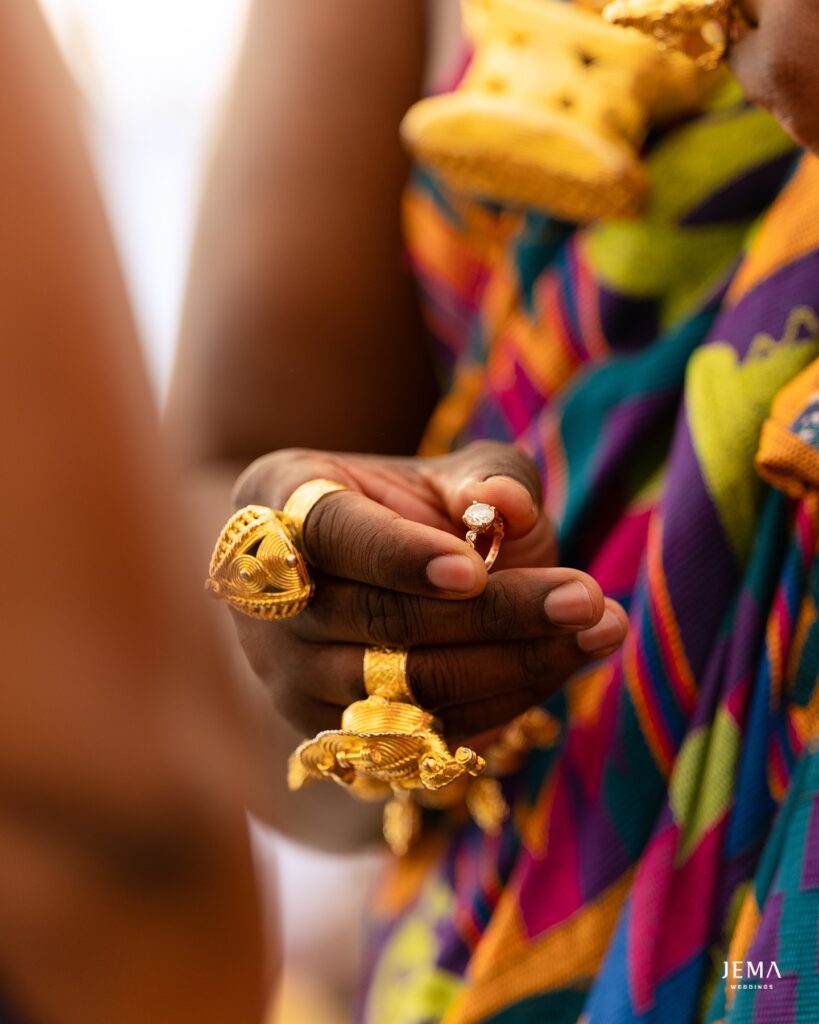
Ghana's rich cultural heritage is vividly reflected in its wedding customs, which are a vibrant tapestry of tradition, colour, and communal celebration. These customs vary among Ghana's many ethnic groups, such as the Akan, Ga, Ewe, and Dagomba, each bringing unique elements to the celebration of marriage.
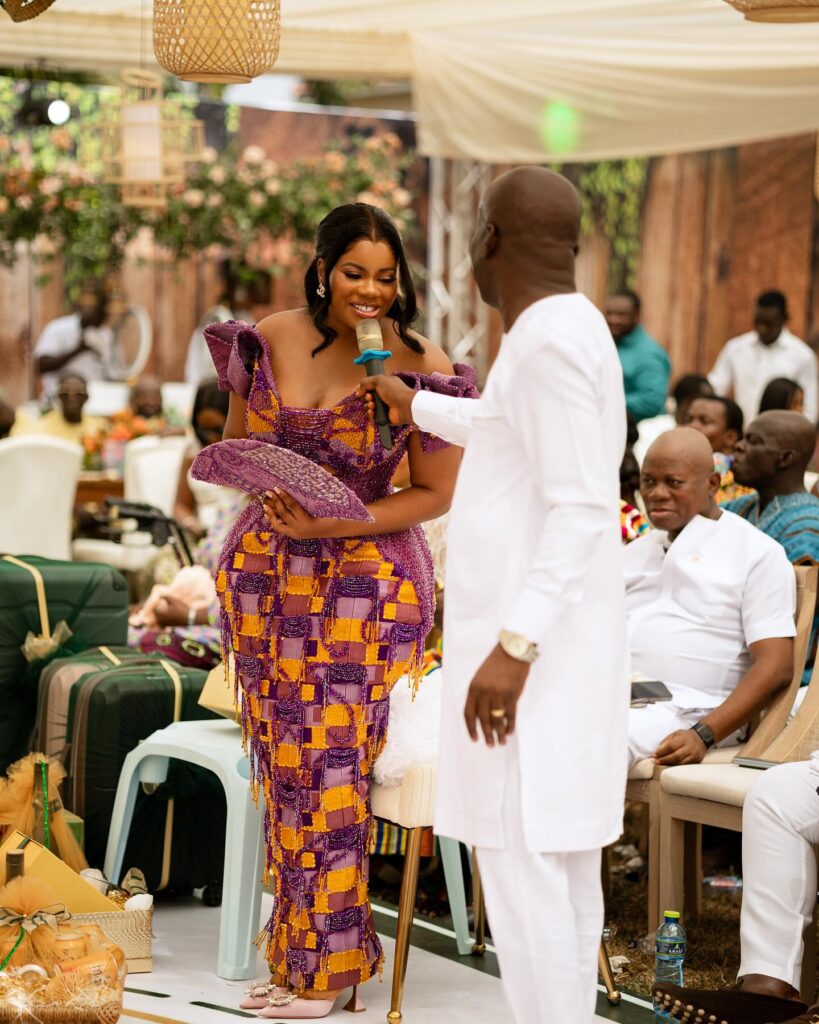
Ghanaian weddings are a beautiful blend of tradition, culture, and community. They are characterised by a series of rituals that not only celebrate the union of two individuals but also bring together families and communities in a vibrant display of unity and joy.
Ghanaian weddings also stand out for their communal joy. As a country, the nation known for its diverse ethnic groups and profound cultural heritage, offers a fascinating glimpse into wedding rituals that are as meaningful as they are visually stunning.
Ghanaian wedding traditions are not just ceremonies; they are a celebration of heritage, a testament to familial bonds, and a journey into the heart of Ghana's cultural background. Each element, from the colourful attire to the rhythmic dance and heartfelt customs, weaves a story of love, unity, and community.
As we delve into the world of Ghana wedding rituals, prepare to be enthralled by the depth of commitment and the vibrancy of celebration that defines a truly Ghanaian union.
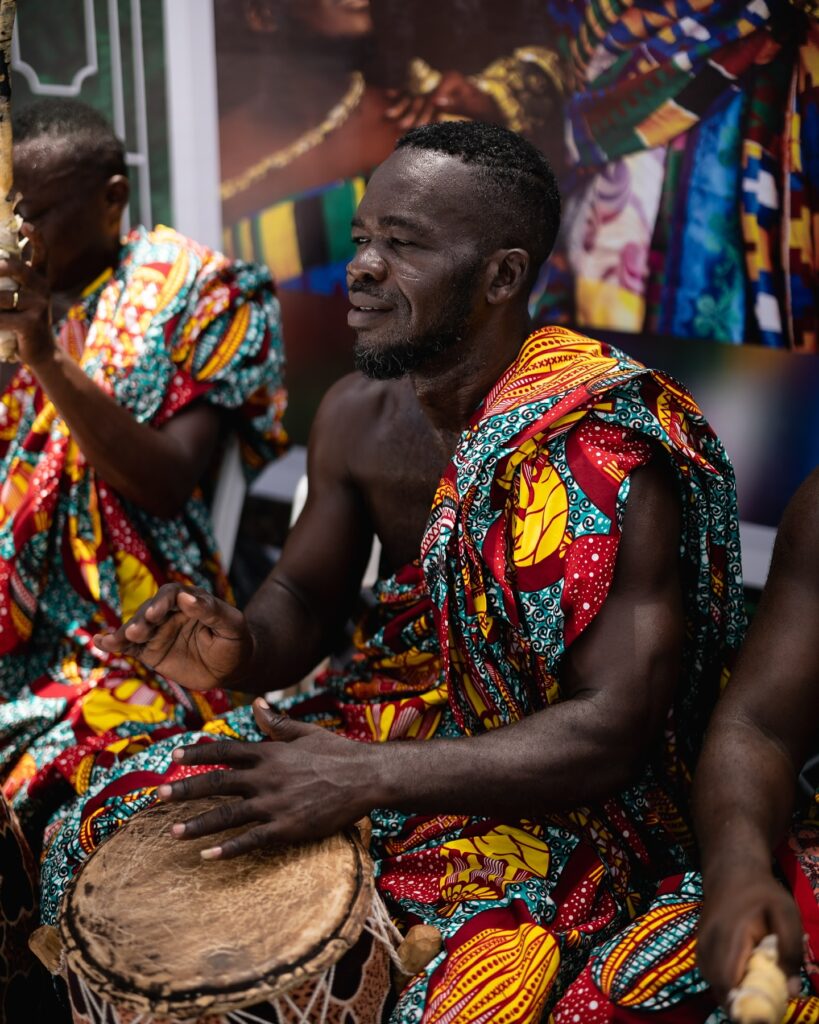
Pre-wedding rituals in Ghana are more than mere formalities; they are a deep-rooted part of the Ghanaian social fabric, intertwining the lives of two individuals and their families. These customs vary significantly among the different ethnic groups in Ghana, such as the Akan, Ga, Ewe, and Dagomba, each adding its distinctive flavor to the celebration. However, they all share common themes of negotiation, consent, and blessings, which are essential for a prosperous matrimonial life.
One of the most pivotal pre-wedding customs is the 'Knocking Ceremony,' known in the Akan language as 'Kokooko.' This ceremony is the formal announcement of the groom's intentions to the bride's family. The groom, accompanied by his family members and elders, visits the bride's home bearing gifts such as bottles of schnapps, money, and sometimes a symbolic dowry.
The knocking is a metaphorical gesture, seeking permission to enter the bride's family and life. This ritual is marked by prayers, discussions about the potential union, and the official acceptance by the bride's family, symbolising the bond between the two families.
Dowry negotiations are a critical aspect of the pre-wedding rituals, where the groom's family presents the bride's family with the dowry or bride price. This is not a purchase but a token of appreciation and commitment towards the bride and her family. The dowry often includes items that symbolise fertility, prosperity, and the well-being of the bride and her future family. The negotiation is a delicate process, balancing respect for tradition with the modern understanding of equality and partnership in marriage.
Following the dowry negotiations, the bride's family provides an engagement list, a detailed enumeration of items that the groom is expected to bring on the engagement day.
This list can range from traditional cloths, jewellery, and food items to modern goods, reflecting the intertwining of contemporary life with age-old traditions. The presentation of these gifts is a spectacle in itself, often accompanied by music, dance, and a festive atmosphere, celebrating the impending union.
In many Ghanaian cultures, pre-wedding rituals also involve seeking the blessings of the ancestors and the divine. Special prayers and offerings are made to invoke the ancestral spirits, asking for their approval and blessings for the couple's future life together. This spiritual dimension underscores the importance of marriage as a sacred covenant, not just between two individuals but as a union blessed by the higher powers and the ancestral lineage.
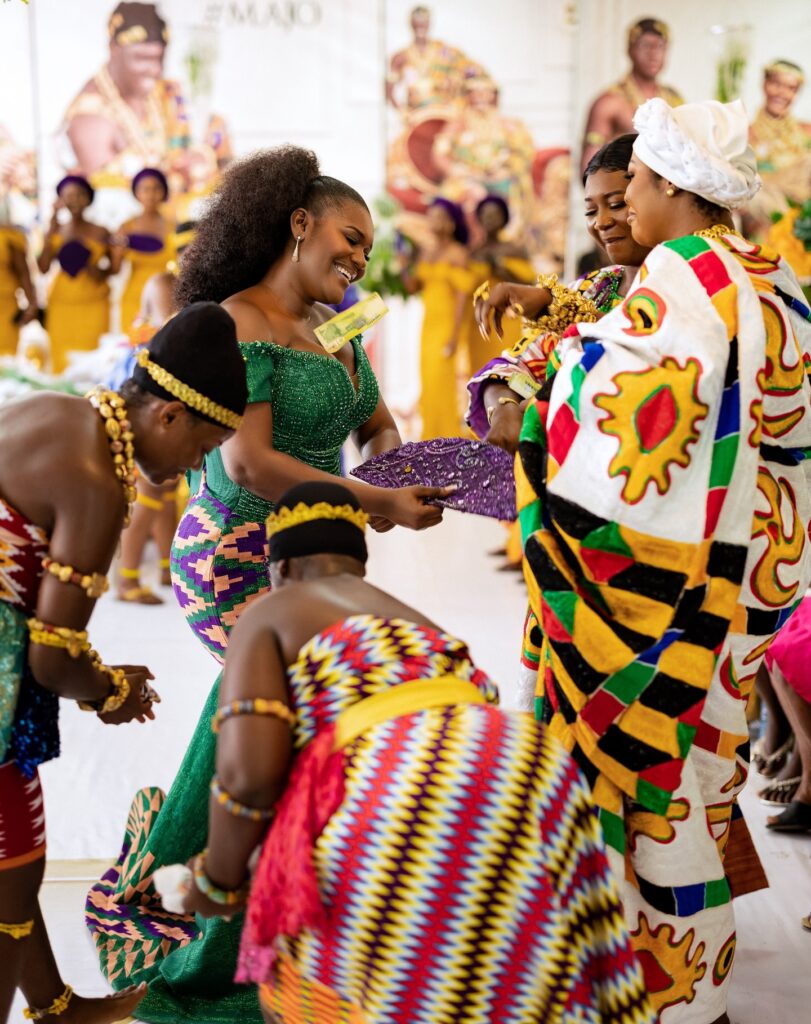
'The Engagement' which is the traditional wedding ceremony is more than just a precursor to the white wedding; it is a full-fledged wedding ceremony in its own right, deeply embedded in Ghanaian culture.
This ceremony is where the two families formally unite, and the couple is traditionally recognized as married in the eyes of their communities. It is a rich blend of customs, steeped in symbolism, negotiation, and the exchange of gifts, all designed to honor the families and ancestors while celebrating the bond between the bride and groom.
One of the most beautiful aspects of 'The Engagement' is the coming together of both families. This convergence is not merely a formality but a profound union of two lineages, each with its own set of traditions, beliefs, and histories. The ceremony is typically held at the bride's family home or a chosen venue that can accommodate the gathering, underscoring the notion of welcoming the groom into the bride's family.
The ceremony is orchestrated by spokespersons (Okyeame) from both families, who serve as the communicators, negotiators, and even jesters at times, ensuring the proceedings are not just solemn but also filled with joy and laughter. Their eloquence, wit, and mastery of traditional proverbs and language underscore the importance of oral tradition in Ghanaian culture, making the ceremony a rich oral gathering that weaves the families together.
Central to the traditional wedding ceremony is the exchange of the dowry and gifts, a practice that has evolved over time but remains a cornerstone of the ceremony. The groom, with his family, presents the dowry and engagement items (the detailed list provided by the bride's family) as a sign of commitment and as a means of honouring the bride's family.
The visual spectacle of traditional wedding ceremonies are unmatched, with vibrant colours, intricate patterns, and symbolic designs adorning both the attire of the bridal party and the venue's decor. The choice of colours and symbols reflects the couple's background, aspirations, theme for their wedding and the traditional meanings associated with different elements. Kente cloth, with its rich history and intricate designs, is often a prominent feature, symbolising the royal and sacred nature of the occasion.
Music and dance are integral to 'The Engagement,' with traditional drumming, dancing, and singing elevating the atmosphere and celebrating the couple's union. These performances may also include popular musicians who are in the trend for a modern touch.
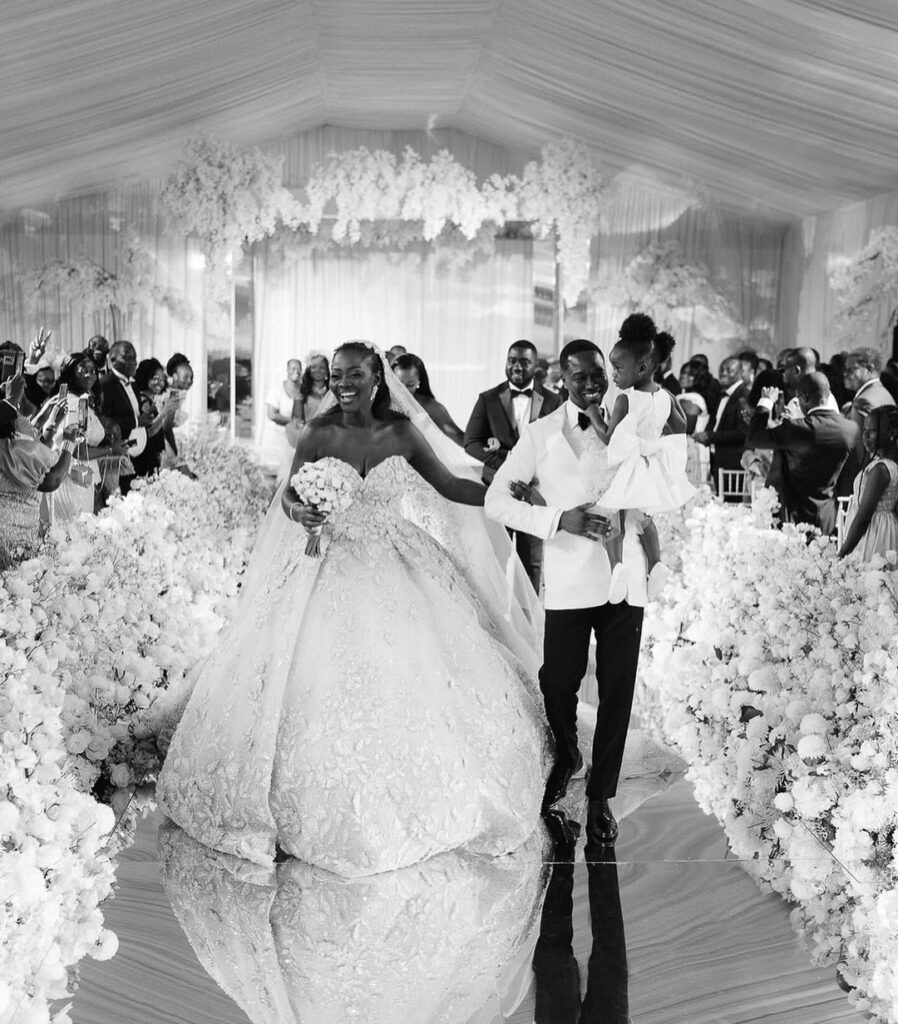
Many Ghanaian couples also have a "white wedding" in addition to the traditional ceremony. This event is more aligned with Western wedding practices, featuring a wedding gown for the bride, a suit for the groom, and a church ceremony, followed by a reception.
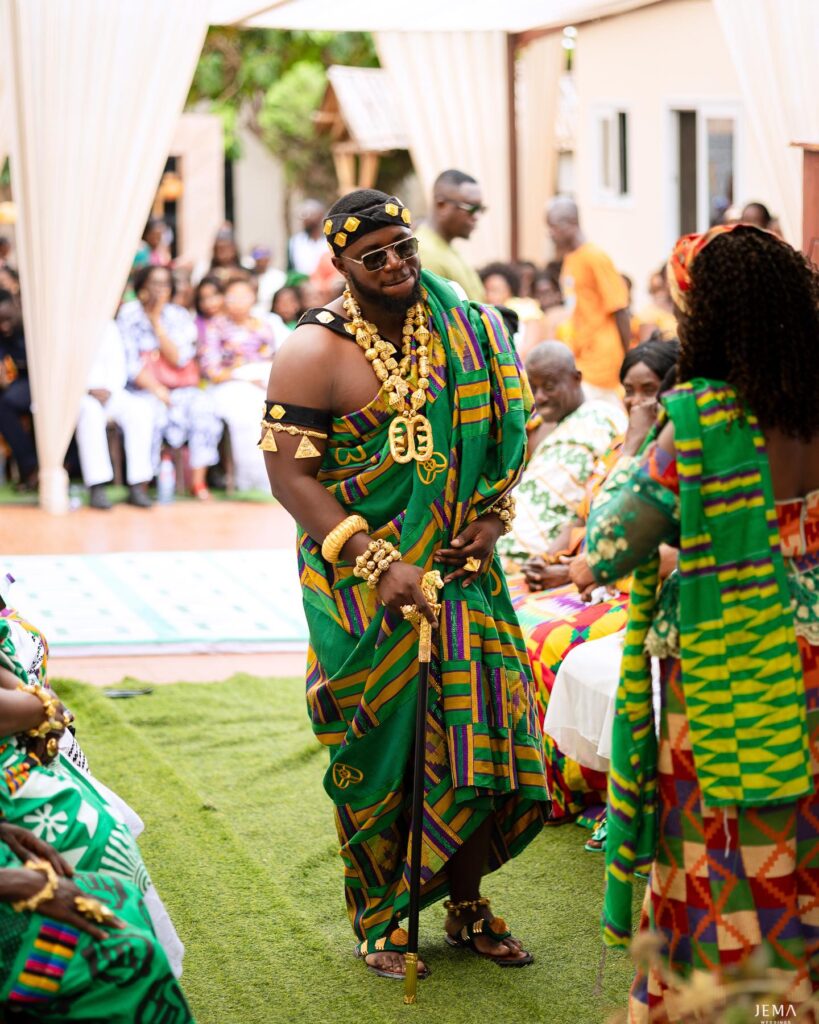
The groom also wears traditional clothing, which may include a Kente cloth draped around the shoulders, along with traditional sandals known as "Ahenema."
Ghanaian wedding decorations tap into world trends, couple's goals and other traditions to make their big day a memorable one. From rustic themes to epic lightings in huge auditoriums, these wedding ceremonies know no bounds for their grandour themes.
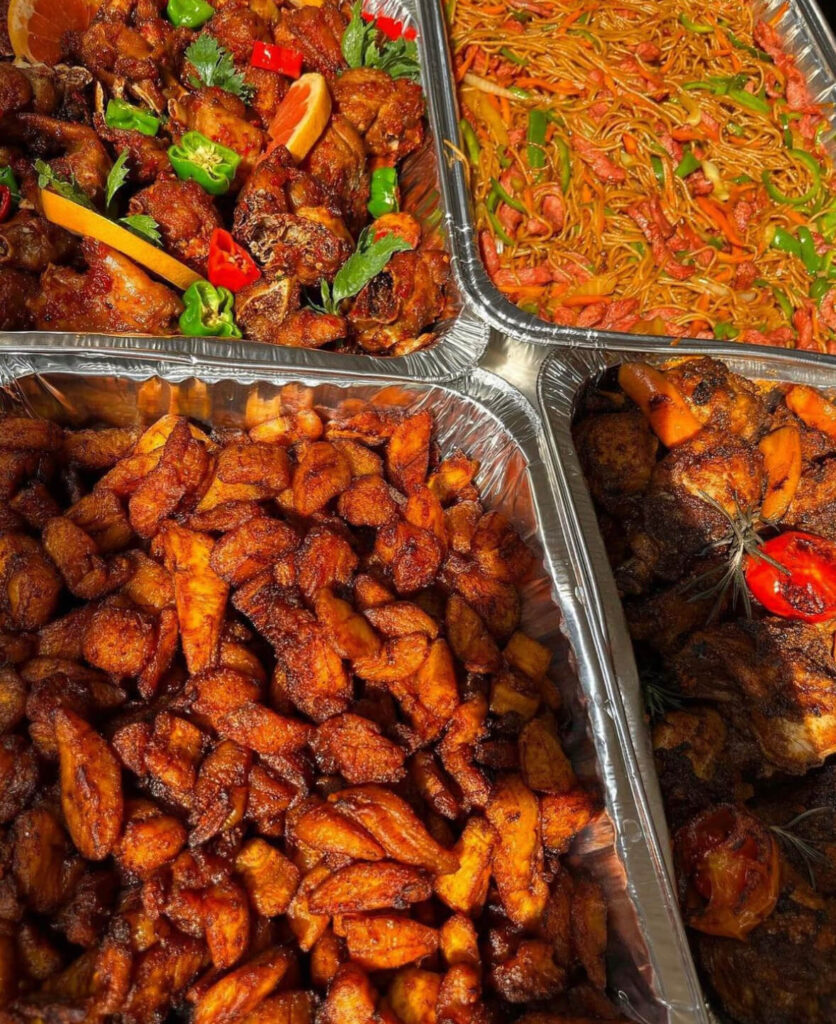
A Ghanaian wedding feast includes a variety of traditional and continental dishes.
No Ghanaian wedding would be complete without the iconic Jollof Rice, a beloved West African dish known for its tantalising blend of spices, tomatoes, and rice. Often served with succulent pieces of grilled chicken, beef, or fish, Jollof Rice is a hearty and flavorful dish that sits at the heart of the wedding feast.
Banku, a fermented corn and cassava dough, paired with grilled or fried Tilapia, is another popular dish at Ghanaian weddings. This combination is cherished for its balance of textures and flavours, with the slightly sour taste of Banku complementing the spiciness of the accompanying pepper sauce and the freshness of the Tilapia.
These weddings also offer an array of sweet treats that tantalise the taste buds. Kelewele, spicy fried plantains, is a favourite, often enjoyed as a snack or dessert. Its sweet and spicy flavours make it a hit among guests of all ages. Bofrot, the Ghanaian version of doughnuts, is another sweet staple at weddings, with its fluffy, sugary goodness providing a perfect end to the feast.
Drinks to complement the rich flavours of wedding food is a must for most Ghanaians. The traditional Ghanaian drinks play a vital role in the celebration. Palm Wine, with its slightly sweet and tangy taste, is a traditional alcoholic beverage that is often served at weddings. It's made from the sap of palm trees and is enjoyed for its refreshing and mildly intoxicating effects.
Sobolo, a non-alcoholic drink made from hibiscus leaves, ginger, and pineapple, is another popular choice, known for its deep red colour and refreshing taste.
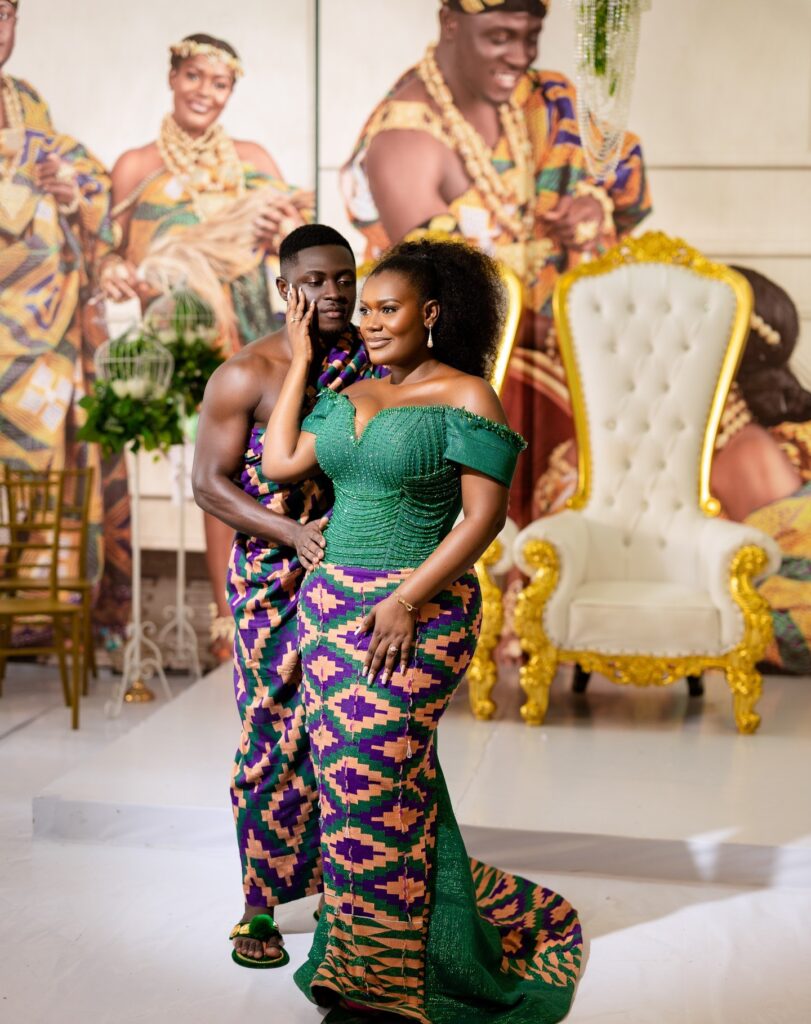
After the wedding, there are customs aimed at integrating the bride into her new family, including visits to relatives and special dinners, which help to strengthen the bonds between the families.
Not mandatory, but many couples choose to honour their heritage and satisfy modern tastes by having both.
Yes, many non-Ghanaians inspired by the rich culture choose to incorporate elements of Ghanaian wedding customs into their celebrations.
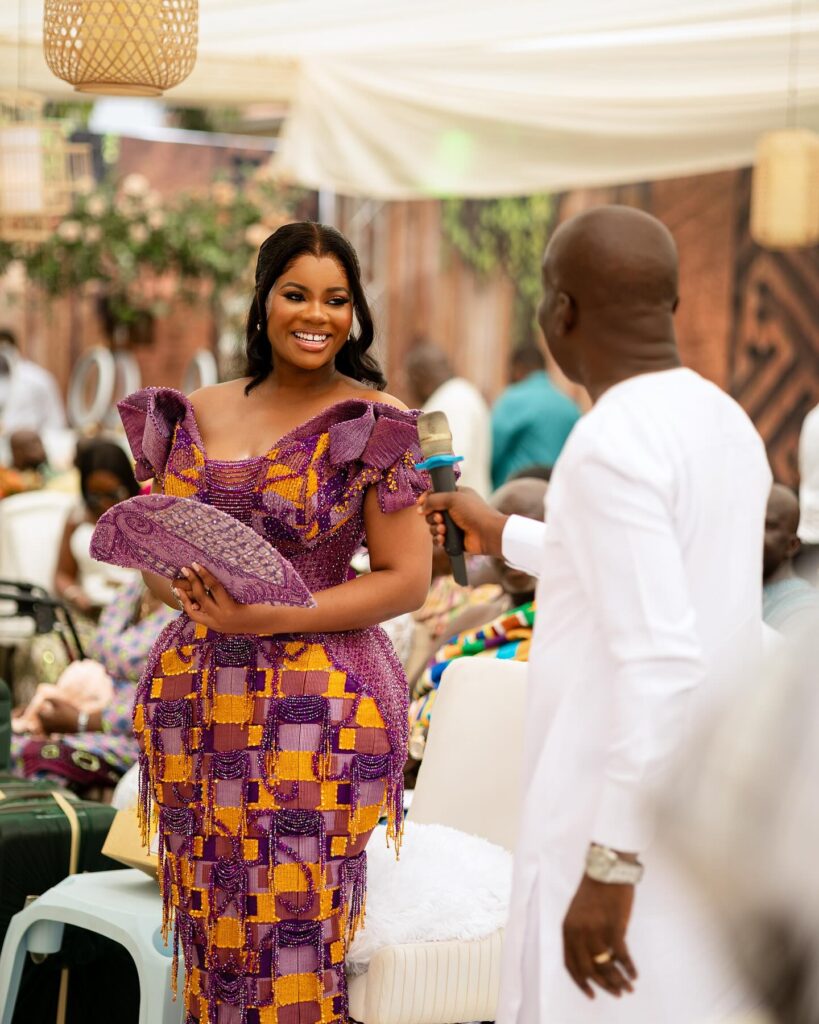
Celebrations can last from a day to an entire weekend, depending on the specific customs of the ethnic group and the preferences of the families involved.